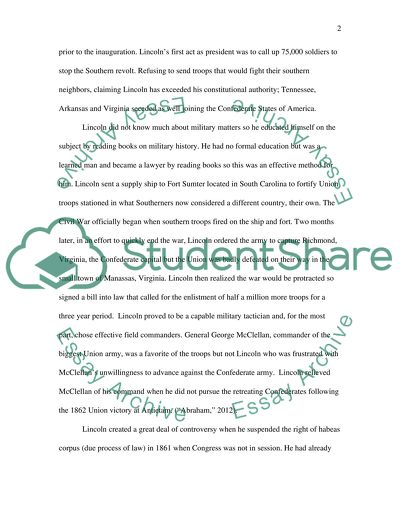Cite this document
(“The Presidency of Abraham Lincoln Essay Example | Topics and Well Written Essays - 1000 words”, n.d.)
Retrieved de https://studentshare.org/history/1462233-the-presidency-of-abraham-lincoln
Retrieved de https://studentshare.org/history/1462233-the-presidency-of-abraham-lincoln
(The Presidency of Abraham Lincoln Essay Example | Topics and Well Written Essays - 1000 Words)
https://studentshare.org/history/1462233-the-presidency-of-abraham-lincoln.
https://studentshare.org/history/1462233-the-presidency-of-abraham-lincoln.
“The Presidency of Abraham Lincoln Essay Example | Topics and Well Written Essays - 1000 Words”, n.d. https://studentshare.org/history/1462233-the-presidency-of-abraham-lincoln.


